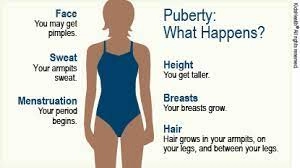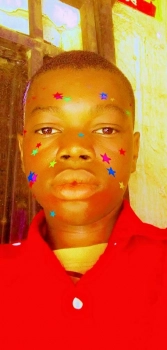profile/9624Emmanuel.jpg.webp
Emmycool2022
Things To Know About Children
~2.5 mins read
1. Children are rational.
Children are nuts. Don't try to reason with them.
2. Children are dumb.
Children are very clever. Because they still ask questions that we adults have given up asking.
3. Children want you to be their friend.
They don't. They want you to be their parent.
4. Children take any notice of what you say.
They don't. They only take notice of what you do.
5. Children's greatest fear is that you will die.
It isn't. Their greatest fear is that they are not good enough to be loved.
6. The most beautiful thing in the world is a newborn baby.
Most newborn babies are quite ugly. Especially when they still have that ick all over them. And it doesn't get a lot better when it's wiped off.
7. Childbirth is a beautiful experience.
Childbirth is like medieval torture with, for men, guilt attached. But the gas and air is good.
8. Children want you to spend lots of money on them.
Children want you to spend lots of time with them.
9. Children respond to criticism and punishment.
They don't. It just makes them hate you.
10. Your children think that you are cool.
They don't. They think you are lame. Tender contempt is the most you can hope for.
11. You are responsible for how your children turn out.
You aren't. Children create themselves far more than the world creates them. That's why your children are so different from each other.
12. You lose your children when they grow up.
You don't. They just get more expensive.
13. Children are born naturally good and the world corrupts them.
Children are a mixture of good and bad, like their parents.
14. Little girls are made of sugar and spice and all things nice, and boys are made of slugs and snails and puppy dogs' tails.
It is usually the other way round. Go and stand in a girls' playground for 20 minutes. Torquemada could only envy that level of psychological brutality. Boys just hit each other. Then they forget about it.
15. Your children are unusually special, talented and beautiful.
Statistically, this is very unlikely. Most children, by definition, are pretty average. Mine, as it happens, are an exception.
16. Children become difficult, rude, unpleasant, selfish and tormented as soon as they reach the age of 13 and therefore can be designated teenagers.
Children can be difficult, rude, unpleasant, tormented and selfish long before that.
17. Having children is a reason to feel intensely proud.
Pretty much anyone can do it actually. It's particularly easy for men.
18. By bringing up your children, feeding them, housing them, spending all your money on them, loving them and protecting them, they owe you some sort of debt.
They don't. Well, they think they don't anyway. Which amounts to much the same thing.
19. Children today spend far too much time on screens.
This is actually great. It means you don't have to play Monopoly or do jigsaws with them.
20. It's lovely going on holiday with your children.
It very much depends on how much childcare you can afford.
profile/9624Emmanuel.jpg.webp
EMMYCOOL2022

Stages Of Puberty
~3.6 mins read
When does puberty begin?
Puberty in girls usually begins between the ages of 8 and 13 and lasts for several years. It is the time where your body develops and matures. Puberty prepares your body so one day you will be able to have a baby. The changes are caused by natural substances in your body called hormones.
When puberty begins, you will start to notice changes both physically and emotionally. At times you may feel overwhelmed by these changes. This is very normal, but puberty is also an exciting time, so it’s important to stay positive.
If you are overweight you may start puberty before the age of 8 and if you are very athletic or underweight you may start puberty later.
The most important thing to remember is that everyone is different, and you will start puberty at the right time for your body, which may also be different from other girls in your family. However, if you haven’t started developing breasts by age 12 or have not had your first period by age 15, speak with your doctor. Ask to see a female doctor if this will make you more comfortable.
How will my body change?
Physical growth
One of the first changes you might notice during puberty is that your hands and feet will start to grow, and you might feel a bit clumsy until the rest of your body catches up. You will most likely reach your peak growth 2 years after puberty starts for you. After your main growth spurt has finished you may only grow another 5cm to 7.5cm in height. During your growth spurt you may also notice that you gain weight, especially around your hips — which become more curvy — and in your breasts.
Growing breasts
Growing breasts can be an awkward and stressful process, especially if you compare yourself to your friends or to celebrities or if other people notice and make comments. It is normal for your breasts to grow at different rates and they will continue to develop until around the age of 17.
Your nipples will also change during puberty, and may turn pink or brown or grow occasional hair — all of which is normal. Breast size and shape often run in the family, so your mother’s breasts can be a good indicator of what yours may look like. Your weight can also affect the shape and size of your breasts.
Body hair
As you go through puberty, you will begin to notice hair growing in new places or thickening in some places. You will grow hair in your armpits, on your legs and in your pubic area near your genitals. This hair will begin thin and straight but will become thicker and sometimes curlier as you get older.
Menstruation (your ‘period’)
Each month the lining of your uterus thickens with blood. When an egg is released by your ovary, if it has not been fertilised by sperm, it will be shed, along with the blood from your uterus. You will see this blood coming out through your vagina. This is known as your period.
While it may look like a lot of blood, only a few tablespoons of blood come out with each period. The blood flow is usually heavier in the first day or two and your period may last up to 7 days. Period blood can vary from bright to dark red, but this is normal.
Irregular periods are also normal in the first 3 years but if your periods are more than 3 months apart, talk to an adult you trust and make an appointment with your doctor. The doctor can check that there are no health problems that are interfering with your cycle.
Other vaginal fluid
During your menstrual cycle when you are not bleeding, the cervix produces other secretions that may be clear or creamy-coloured. This fluid will also be discharged through your vagina and you may notice it on your underwear.
What kind of physical challenges will I face during puberty?
Menstruation
In the days before your period, you may begin to feel physically bloated or have a bigger appetite. You may also have sore muscles and joints, stomach pain and tiredness. Mentally, you may feel anxious or have a lower mood and feelings of loneliness. This is called premenstrual syndrome (PMS) and describes the physical and emotional symptoms that you may experience in the lead up to menstruation.
Skin changes
During puberty, your body produces different levels of the hormones that affect the glands which control the oil on your skin.
Pimples or acne are caused by overactive glands in skin, and you may notice you get more pimples as you go through puberty.
Try to avoid touching the pimples since this can make them worse or lead to scarring. If you are worried about your skin, speak to your doctor about the treatments available to you.
Advertisement

Link socials
Matches
Loading...
